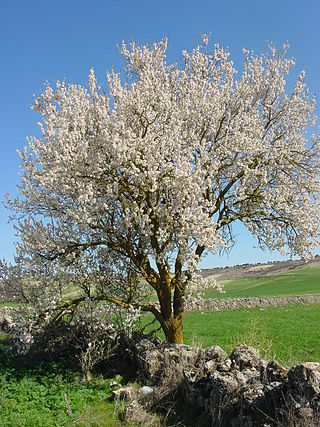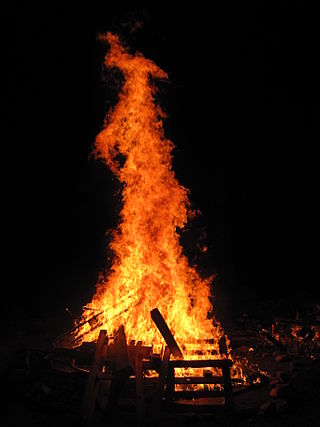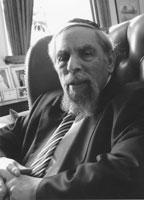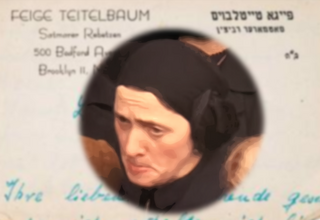Related Research Articles

Shevat is the fifth month of the civil year starting in Tishre and the eleventh month of the ecclesiastical year on the Hebrew calendar starting in Nisan. It is a month of 30 days. Shevat usually occurs in January–February on the Gregorian calendar. The name of the month was taken from the Akkadian language during the Babylonian Captivity. The assumed Akkadian origin of the month is Šabātu meaning strike that refers to the heavy rains of the season. In Biblical sources, the month is first mentioned by this name in the book of prophet Zechariah.

Iyar is the eighth month of the civil year and the second month of the Jewish religious year on the Hebrew calendar. The name is Babylonian in origin. It is a month of 29 days. Iyar usually falls in April–May on the Gregorian calendar.
The Board of Deputies of British Jews, commonly referred to as the Board of Deputies, is the largest and second oldest Jewish communal organisation in the United Kingdom, after the Initiation Society which was founded in 1745. Established in 1760 by a group of Sephardic Jews, the board presents itself as a forum for the views of most organisations within the British Jewish community, liaising with the British government on that basis. Notably, while Lord Rothschild was President of the Board of Deputies, the Balfour Declaration was addressed to him and eventually led to the creation of a Jewish state in Palestine. It is affiliated to the World Jewish Congress and the European Jewish Congress. The current president is Marie van der Zyl.

Louis Jacobs was a leading writer, Jewish theologian, and rabbi of the New London Synagogue in the United Kingdom. He was also the focus in the early 1960s of what became known as the "Jacobs Affair" in the British Jewish community.
Boyan is a Hasidic dynasty named after the town of Boiany in the historic region of Bukovina, now in Ukraine. The Hasidut is headquartered in Jerusalem, with communities in Beitar Ilit, Bnei Brak, Manchester, Australia, Beit Shemesh, London, Antwerp, Manhattan, Brooklyn, Los Angeles, Monsey, Lakewood, and Atlanta. Boyan is one of the branches of the Ruzhiner dynasty, together with Bohush, Chortkov, Husiatyn, Sadigura, Kapishnitz, Vaslui and Shtefanesht.
Shlomo is the English form of שְׁלֹמֹה, the Hebrew name of the Israelite King Solomon. It is a popular name among Jews, especially in the State of Israel.
Rabbi Shmuel Dovid Ungar, also known as Rabbi Samuel David Ungar, was the rabbi of the Hungarian city of Nyitra and dean of the last surviving yeshiva in occupied Europe during World War II. He was the father-in-law of Rabbi Chaim Michael Dov Weissmandl, and played a minor role in the Bratislava Working Group's efforts to save Slovak Jews from the Holocaust.
Siget or Ujhel-Siget or Sighet Hasidism, or Sigter Hasidim, is a movement of Hungarian Haredi Jews who adhere to Hasidism, and who are referred to as Sigeter Hasidim.
Liska is the name of a Hasidic dynasty founded by Rabbi Tzvi Hirsch Friedman (Frishman). It takes its name from the Yiddish name for Olaszliszka, a village in Borsod-Abaúj-Zemplén county, Hungary.
Joseph Asher (1921–1990) was an American rabbi born in Germany, known for his advocacy of reconciliation between the Jews and the Germans in the post-Holocaust era, and for his support for the civil rights movement in the United States. He was senior rabbi at Congregation Emanu-El in San Francisco for 19 years.

Laura Naomi Janner-Klausner is a British rabbi and an inclusion and development coach who served as the inaugural Senior Rabbi to Reform Judaism from 2011 until 2020. Janner-Klausner grew up in London before studying theology at the University of Cambridge and moving to Israel in 1985, living in Jerusalem for 15 years. She returned to Britain in 1999 and was ordained at Leo Baeck College, serving as rabbi at Alyth Synagogue until 2011. She has been serving as Rabbi at Bromley Reform Synagogue in south-east London since April 2022.
Moshe Yechiel Epstein was the Ozharover Rebbe, and an Israel Prize recipient in the category of Rabbinical literature in 1968.

Esther Farbstein is an Israeli historian, researcher, author, and lecturer. Considered the leading Haredi scholar of the Holocaust, she focuses on the spiritual responses of Jews to Nazi persecution. She has introduced new sources for academic research on the Holocaust, and has also shepherded the incorporation of Holocaust education in Haredi girls schools. In 1994, she founded and became head of the Center for Holocaust Studies at Michlalah–Jerusalem College in Bayit Vegan, Jerusalem. She is the author of numerous books, articles, and monographs in Hebrew and English.

Faige Teitelbaum, born Alta Fajge Szapiro and known as the Satmar Rebbetzin, was an American Hasidic community leader. Teitelbaum's status as Rebbetzin was gained through her marriage to the first Rebbe (leader) of the Satmar Hasidic community, Rabbi Joel Teitelbaum (1887-1979). After her husband's death, the Satmar Rebbetzin gained a following of supporters who stood in opposition to her husband's successor, the second Rebbe of Satmar, Rabbi Moshe Teitelbaum (1914-2006).
References
- ↑ Patai, Raphael (1996). The Jews of Hungary: History, Culture, Psychology. Detroit, Michigan. p. 400. ISBN 0-8143-2561-0 . Retrieved Aug 12, 2014.
{{cite book}}: CS1 maint: location missing publisher (link)